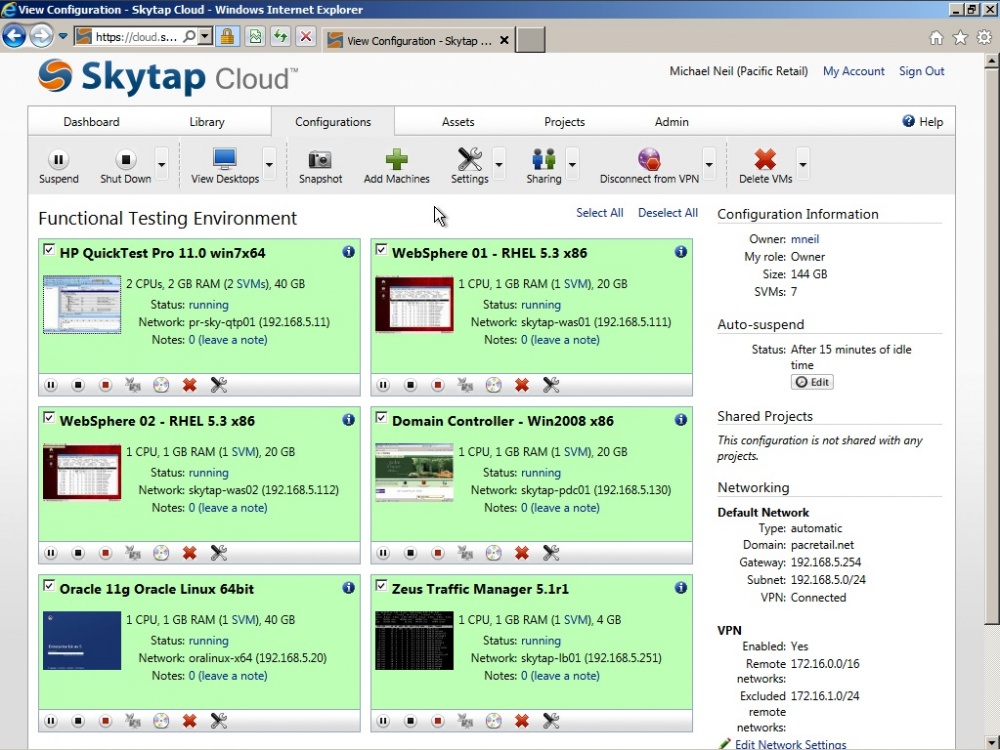The cloud itself is hosted by Savvis, a $1 billion market cap provider of corporate infrastructure services. It is tempting to compare Skytap with Amazon's EC2 cloud service, but in reality there is no comparison.
For starters, Skytap runs on VMware hosts; unlike EC2, which only recently announced limited support for Windows, it lets you run all forms of Windows machines, from old versions to 64-bit heavy lifters with eight cores and 8GB of RAM. It also runs just about every other major operating system. Skytap facilitates construction of your own template library by having templates of all major machines available for retrieval from its central vault. If you grab a Windows machine, you'll need to enter the 25-character license key the first time it starts up; then you're good to go.
If you already have your own virtual machines, you can upload them to your library. Running Skytap was trivially easy and intuitive. Weeks after the half-hour demo, I was still able to log in and successfully run around the system, tending to all the standard tasks. Features work as expected, the interface is both intuitive and attractive, and users are immediately productive.
The cloud environment is nicely leveraged by Skytap. It's possible to configure the lab manager's IP configuration to be an extension of an in-house segment so that you can make the virtual machines available as normal machines to users. This is safe, as IP addresses are not exposed to the outside unless you explicitly configure them for public access and assign them one of the IP addresses in your public pool.
The linked clone issue is handled differently by Skytap. Rather than use VMware's approach, clones are not linked. Rather Skytap drops to the OS level and simply copies the disk image of the VM in its entirety. The cloud storage is optimised for disk I/O, and the company claims that this approach can be as fast as VMware's cloning. Given the impossibility of comparing like to like, this could not be verified, but I remain skeptical.
Pricing is favourable when compared with standard cloud options. The base enterprise pricing comprises 50 virtual machines, 5TB of storage, 1TB transfer, 10 IP addresses, 50 users, 1,000 VM-hours, IPsec, VPN, and training for $2,400 per month. VM time is measured by the minute, with no rounding for fractions of an hour. Sites can have their cloud custom branded so that there is no evidence the systems are running on an outside platform. An express plan for small businesses or tire kickers offers the full set of features for five users, five virtual machines, and 500 machine hours for a mere $250 per month.
Via techworld





















0 comments:
Post a Comment